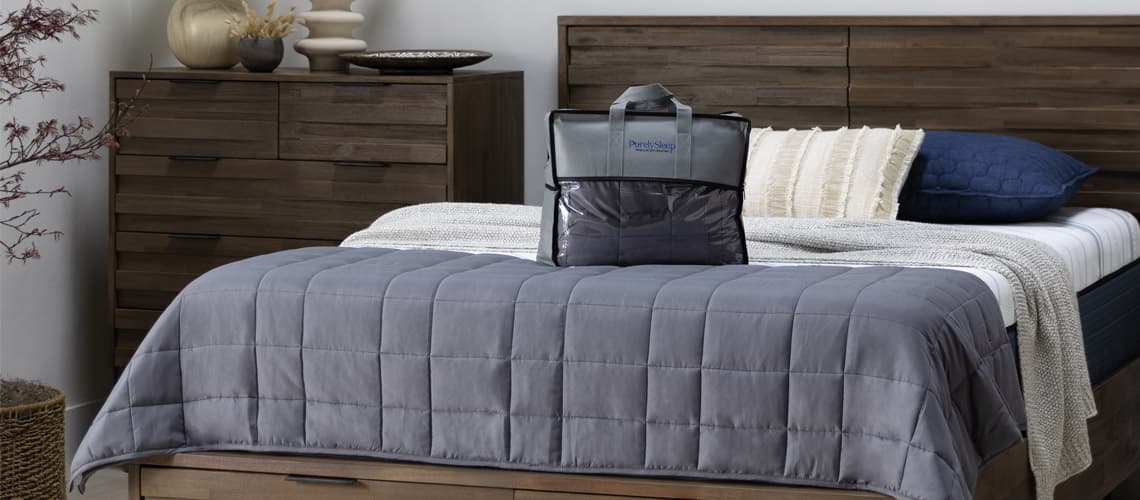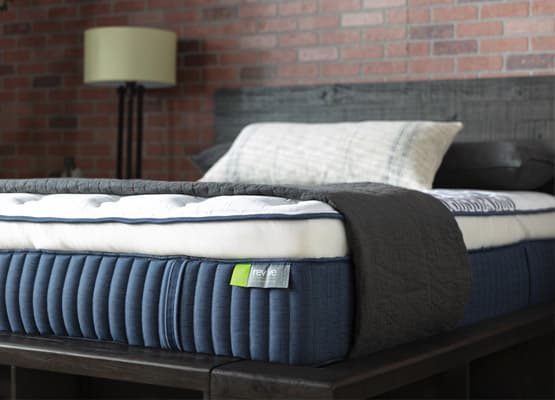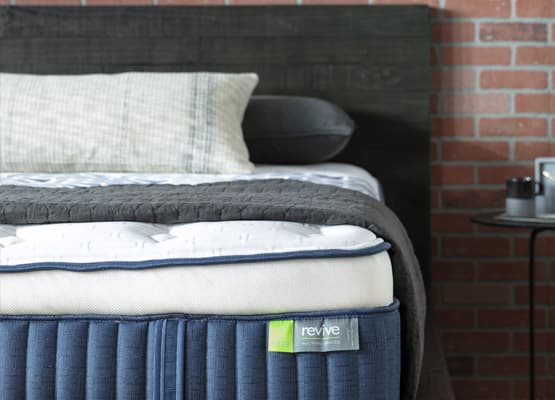Weighted Blanket Benefits + Little-Known Facts About Stress Relief
What Exactly Is a Weighted Blanket?
Weighted blankets are similar to weighted vests in that they're heavier than their traditional counterparts without losing the style everyone has grown to love. Depending on the type of weight blanket, the weight will be added through glass beads, plastic pellets or simply introduced through dense yarn for knitted weighted blankets.How Do Weighted Blankets Work?
The science behind how weighted blankets achieve the swaddling feel is based on deep pressure stimulation. By taking the weight of the blanket and spreading it out over the body, a gentle pressure is able to be maintained and provide the user with a sense of calm relaxation.A Weight Blanket Benefits Everyone
Think of how a newborn baby can go from crying louder than ever before to fully asleep in a matter of moments. Mothers and fathers achieve this through swaddling and comforting their little one, the same principles used by weight blankets.
The added pressure even mitigates stressful and anxious thoughts, one of the biggest contributors to poor sleep. Less sleep also leads to poorer mental health and can even cause an increase in body weight.
Swaddling Elevates Our Sleep Quality
The pressure of a weighted blanket and its ability to improve sleep is all thanks to the concept of deep pressure stimulation helping regulate serotonin and cortisol. Increased serotonin levels help to improve our mood while cortisol is responsible for anxious thoughts and is decreased for better sleep.
During all of these chemical changes, the central nervous system will also relax. The reason a slower central nervous system is so important is that it helps to reduce:
- hyperactivity
- rapid breathing
- increased heart rate
- intrusive thoughts
- panicked responses to stimuli
Who Benefits Most From Weighted Blankets?
There's no doubt that nearly everyone can improve their sleeping habits and get a good night's sleep with a weighted blanket. Thankfully, there are even more benefits to be had for those who live a high-stress life or have certain medical conditions. Typically these will be conditions that increase mental activity and cause sleep quality to diminish due to it. Weighted blankets can help the following conditions.Autism Spectrum Disorder
One of the most calming techniques used to help those with autism spectrum disorder is deep pressure therapy. Weighted blankets are able to simulate this for them every night and keep their focus on the pressure instead of other external stimuli found in the room. Heavy blankets are being used for both children and adults with autism spectrum disorder.OCD, ADHD and Panic Disorder
Conditions such as these often come with additional anxiety or depression as each one can create endless loops of thought that never let them wind down for bed. Those with attention deficit hyperactivity disorder, or ADHD, struggle the most with these cycles and weighted blankets allow them to fall asleep quicker and get better rest to tackle their symptoms the next day.Can Anyone Use a Weighted Blanket?
While weighted blanket benefits are universal, there are some situations in which you should reach out to your doctor about before making your decision. One example would be someone who doesn't have the strength to reliably remove the blanket. They would need to choose a lighter weighted blanket or forgo one altogether to avoid being trapped beneath it.
The added pressure can also make breathing more difficult for those with respiratory issues. Conditions that can cause this include:
- asthma
- type 2 diabetes
- obstructive sleep apnea
- respiratory infections
- circulatory disorders
Even if someone hasn't been diagnosed with a respiratory disorder, they should always refer to their doctor if they have trouble breathing at night or feel their weighted blanket is worsening their symptoms. Children are also at risk of suffocating under weighted blankets and should never be allowed to use them without proper supervision.
How Heavy Should My Weighted Blanket Be?
Outside of specific medical situations, the rule of thumb for weighted blankets is to get one that weighs a tenth of your body weight. For example, someone that weighs 170 pounds should look for a blanket around 17 pounds for optimal pressure. The size can be tailored to your mattress up to a king size with some companies offering custom blankets for larger beds, travel and child use.
Making the swap to a weighted blanket no longer has to sacrifice on looks or style with high-quality options often coming in at a similar price to their non-weighted counterparts. With breathable options for summer and endless designs, weighted blankets are finding a place in more homes every day.
— More Great Articles —
The Weighted Blankets Shop
Read the Latest
Editorial Disclaimer: Articles featuring tips and advice are intended for educational purposes and only as general recommendations. Always practice personal discretion when using and caring for furniture, decor and related items.
















